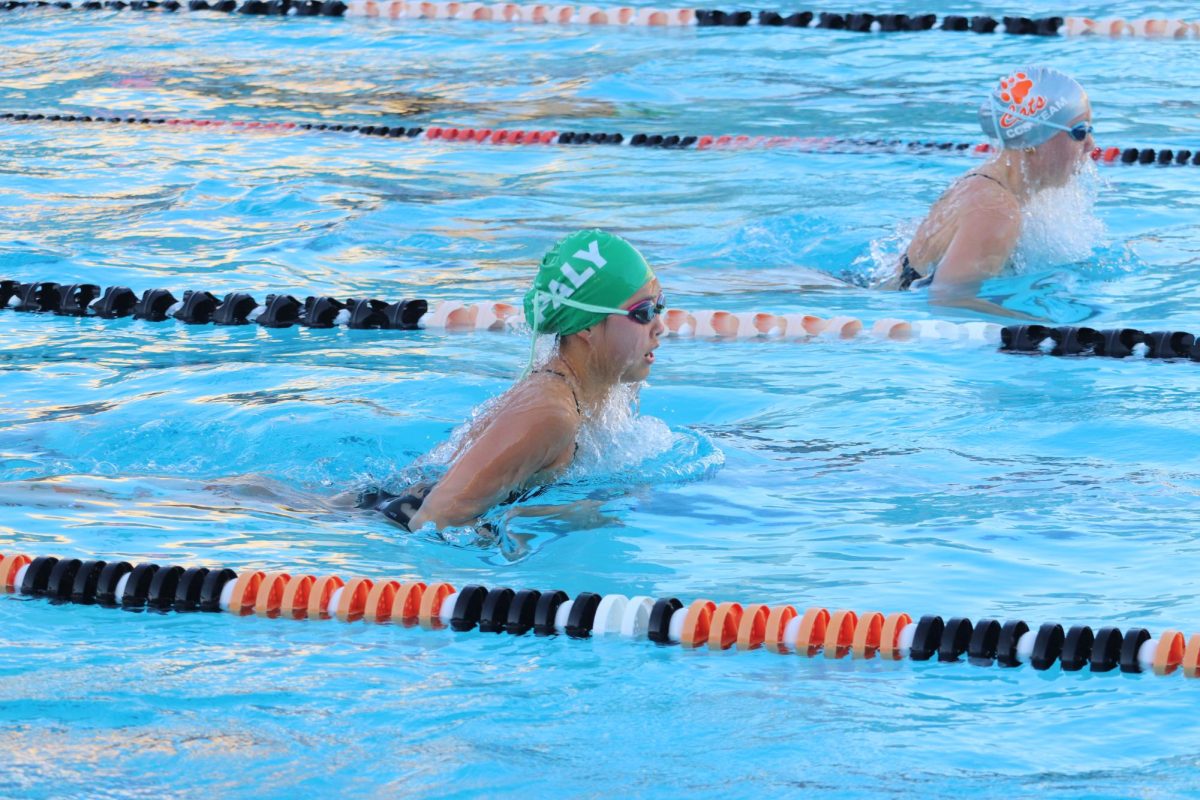In the summer of 2010 all eyes were focused on Johannesburg, South Africa. The first world cup to take place in South Africa brought forth new levels of soccer, new numbers of fans and a newly renewed tactic of…flopping?
Throughout the World Cup, the greatest soccer stars were throwing themselves to the grass as if the gravity in Johannesburg somehow pulled them harder than anywhere else in the world. Game after game players like Christano Ronaldo, Lionel Messi and Bastian Schweinsteiger would fall to the ground, immediately grabbing a knee, ankle, or whatever body part was closest, and game after game the referees would blow their whistles and sometimes award a free kick, and at times the penalty of a card.
In this display of what is supposed to be the highest level of soccer, the world also became attuned to something which before soccer players kept only to themselves: the large role “flopping” or faking an injury to get a call plays in mens’ professional soccer.
This newly discovered problem, although most commonly related to soccer, is now becoming more prominent in sports such as basketball, water polo, lacrosse and even baseball. In high schools across the nation, more competitive play as well as more competitive athletes are leading to an increasing number of high school “floppers”.
Water Polo
In both boys and girls water polo, quick plays and strong attacks are key aspects of the game. In a sport which is played in the pool, it is up to two sideline referees to determine that everything they see; both in the water and above it.
Water polo players will often try to overcome their opponents by faking injuries in order to get other players ejected for foul play. Varsity driver Ken Wattana (‘11) gives flopping the definition of a “love-hate relationship”.
“It can really influence a game,” Wattana said. “If you get three kick-outs, then you are out for the game.”
Wattana also realizes that flopping can be used to the team’s advantage as well. If one can get the best player “kicked out” (they must stay in the penalty box for 20 seconds) not only does it allow for a 5 on 4 situation, but it also helps build the team’s momentum.
On the other hand, Wattana believes players should work their hardest before intentionally faking an injury to get a call. He finds it frustrating when his teammates are ejected from the game because other athletes chose to flop.
“If you put yourself in a situation where someone acting can get you kicked out, then its really your fault that it happened,” Wattana said. “Stay in front of your player so that even if the person does deserve an Oscar award they won’t get the call.”
In addition to being detrimental to the team, The Central Coast Section is cracking down on players who are “rolled”, or ejected from games. Water polo players may have to face “brutality charges”, after which they may be suspended from play until CCS deems them safe to play.
The more important problem that Girls varsity two meter Katie Maser (‘11) sees is that flopping is dishonest and does not show the sportsmanship that Paly sports are associated with.
“If your team fakes a lot of injuries you get a bad rep and you want to be a classy team,” Maser said. “Flopping is dishonest, and dishonesty doesn’t have a place in sports.”
Maser feels flopping is an easy way out of working hard and playing hard. She respects the honesty and discipline in each of her fellow Lady Vikes and expects the same out of her opponents.
“It [flopping] brings bad sportsmanship and poor attitude to the game,” Maser said. “It just makes the game less fun to play.”
Girls’ Lacrosse
Girls’ lacrosse has one of the strictest regulations of contact between players. Girls who participate in the sport are usually diligent in obeying these rules, but when players over exaggerate and emphasize checks, they face the same problem as water polo players: ejection.
Most commonly, players will fake head checks and amplify the effect of a trip. Girls’ varsity lacrosse player Charlotte Biffar (‘13) feels these deceptions take away from the essence of lacrosse.
“Its not good sportsmanship, you should play the game the way it’s meant to be played and faking injuries to get a call does not contribute to the sport,” Biffar said.
Biffar finds it frustrating when opposing players flop because not only does she feel it ruins the game, but it takes away from the players who are trying their best.
Flopping will play an even larger role this year in girls lacrosse because of a new rule which requires that if your team has three yellow cards collectively, one member of the team has to sit out for the entire game.
“Its going to be a big deal this year,” Biffar said. “Especially if people on the other team are faking injuries to get our good players out.”
Not only does faking injuries affect the ability of the person who “injured” another player to participate in the sport, Biffar also feels it is discouraging to see other players playing with less integrity than she or her fellow Lady Vikes would.
Baseball
Many spectating fans don’t see many opportunities to flop in baseball. They might insist that baseball is more a gentleman’s game, requiring a high mental capacity and a depth of strategy. But ask the players and they will tell you the truth. Baseball players can deceive umpires by faking a hit by pitch or going to first base on potential fourth ball.
“Almost all of my coaches over the years have told me that you have to get on base anyway you can, even if you have to act like you got hit,” Graham Marchant (‘11) said. “I think we even practiced it for one team I was on.”
On the defensive side of the ball, players can pretend they caught a trapped ball on a diving catch or that they tagged a runner.
“On a tag play a fielder might pretend like he got the guy out…just trying to fool the umpire and make himself look confident that he got the out,” Drake Swezey said (‘11).
Another way that players can bamboozle officials is to frame pitches. On a pitch at the top of the strike zone near the letters a catcher will rotate is wrist down in order to convince an umpire that it is in the strike zone. If the pitch is low aorund the knees the catcher will do the opposite.
“You need every strike you can get,” Will Glazier (‘11) said. “You gotta win the game.”
Basketball
“In my mind, players that flop are actually the smarter players on the court…they know how to affect how their opponent plays,” point guard Alec Wong (‘12) said.
Wong plays point guard for the Paly varsity basketball team. He uses flopping in order to influence referees into thinking that he takes charges.
“Players who flop are able to make it look like there is more contact than there actually is, to make it look like their opponent is out of control,” he said.
Wong believes that flopping does not influence the culture of the sport; it only means players are getting smarter. Players can se flopping in order to take charges or on drives to the basket. Many players will yell out on drives in order to imply contact from the defense. Michael Augustine (‘12), a forward for the Vikings, feels that players should do anything they can to win a game.
“The athlete has to do whatever he has to do to win the game,” Augustine said. “When the opportunity to help ones cause is there, one has to take that opportunity.”
Trainer Josh Goldstein, however, does not agree with the players. He feels that flopping is mostly used as an extra time out or when players are tired.
“A player will go down and pretend that there is an injury that needs taking care of usually late in the game, when they are tying to get the extra time out or give the players a rest,” Goldstein said. “Basketball gets over exaggerated…people falling on the floor or taking a charge harder a block foul harder than what was really done.”




